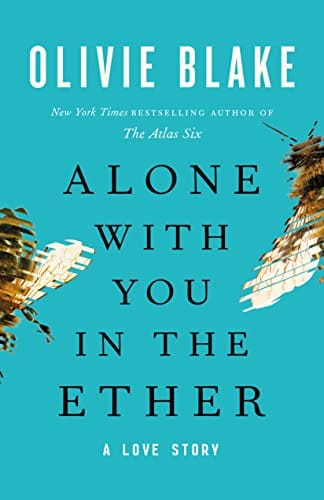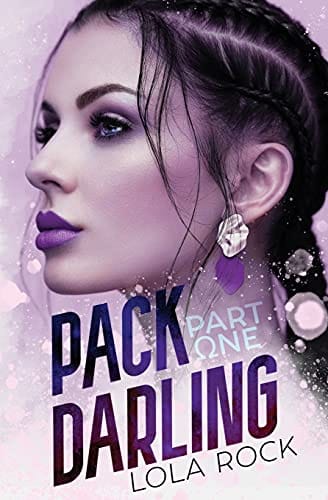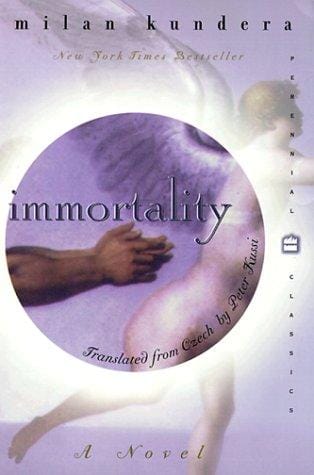Alone with You in the Ether: A Spoiler-Light Review & Thematic Exploration
Explore Olivie Blake's Alone with You in the Ether in this spoiler-light review covering plot, themes, mental health depiction, and why the novel stands out.

Introduction
Alone with You in the Ether by Olivie Blake has quietly become one of the most talked-about contemporary novels on social media book corners, pulling readers in with a promise of unconventional romance, philosophical musings, and an unflinching portrayal of mental health. Originally self-published and later picked up by Tor Books after the runaway success of The Atlas Six, this intimate story follows two brilliant, broken people who meet by chance in a Chicago art museum and proceed to dismantle each other’s carefully constructed realities. What unfolds is less a traditional love story and more an exploration of obsession, time, and the delicate machinery of the human mind.
Plot Snapshot
The novel centers on Aldo Damiani, a doctoral candidate in mathematics grappling with obsessive-compulsive thought spirals, and Charlotte “Regan” Evans, a former counterfeit artist whose bipolar disorder and anger issues have left her drifting through life. When their crossing paths spark a strange, immediate connection, they agree to six conversations—no contact information, no additional meetings, just six chances to dissect the universe together. Unsurprisingly, the boundaries of their pact blur as the pair push deeper into each other’s psyches, confronting family expectations, self-destructive impulses, and the terror of true intimacy.
Character-Driven Storytelling
Blake’s greatest strength lies in her ability to create characters who feel urgently alive. Aldo’s interior monologues, often laced with mathematical metaphors, present a mind racing toward infinite possibilities while unable to silence intrusive worries about entropy, causality, and the eventual heat death of the universe. Regan, by contrast, is all instinct and volatility; she paints counterfeit masterpieces not for profit but to prove she can capture a genius that was never meant to be hers. Watching these two perspectives collide is electric. Their dialogue veers from fractals to childhood trauma, alternating between sparkling wit and raw vulnerability.
Mental Health Representation
Alone with You in the Ether treats OCD and bipolar disorder with honesty and respect, refusing to flatten either condition into convenient plot devices. Aldo’s compulsions are not quirky eccentricities—they are disruptive, painful, and sometimes dangerous. Regan’s manic energy can be intoxicating, yet it also imperils her relationships and sense of self. Blake depicts therapy sessions, medication struggles, and self-sabotage without moralizing. By emphasizing how both characters negotiate treatment alongside desire, the novel becomes a powerful commentary on loving with and through illness rather than despite it.
Romance Meets Philosophy
Readers looking for a breezy, feel-good love story may be surprised: this is a romance steeped in thought experiments, metaphysics, and art theory. The six-conversation framework offers fertile ground for debates about free will, the arrow of time, and whether beauty can be owned. Yet Blake keeps the intellectualism grounded by tying each lofty question back to Aldo and Regan’s emotional stakes. For instance, Aldo’s obsession with time loops mirrors his fear of repeating mistakes, while Regan’s fixation on forging masterpieces signals her struggle to believe she can create something valuable on her own terms.
Setting and Atmosphere
Chicago itself becomes a silent third character. From the marble halls of the Art Institute to the echoing emptiness of the Field Museum at night, each location reflects the protagonists’ shifting moods. The city’s brutal winters and glittering skyline provide both refuge and threat, underscoring themes of isolation versus connection. Blake’s prose often lingers on sensory detail—the hiss of Lake Michigan wind, the static hum of fluorescent lights during a late-night academic conference—immersing readers in moments that feel simultaneously mundane and extraordinary.
Prose Style
If you have read The Atlas Six, you already know Blake favors lyrical, densely layered sentences that occasionally border on purple but remain compulsively readable. In Alone with You in the Ether, her style tightens into something more intimate. The narrative alternates between first-person transcripts, third-person exposition, and even snippets of academic papers, creating a collage that mimics the nonlinear way the characters process memory and emotion. This structural experimentation enhances the notion that love, like quantum particles, resists a single fixed point of view.
Major Themes
Time and Causality
Aldo’s research into time travel theory underpins the novel’s cyclical structure. Every conversation seems to echo forward and backward, suggesting that once two people collide, their trajectories can never fully disentangle.
Authenticity and Forgery
Regan’s career as a counterfeiter raises questions about what makes art authentic. Can an emotion be genuine if the story around it is fabricated? The novel answers by proposing that sincerity resides in intent rather than provenance.
Self-Destruction versus Creation
Both protagonists flirt with obliteration—Regan through reckless behavior, Aldo through intrusive thoughts about non-existence. Their relationship becomes a laboratory for testing whether two damaged people can create something healthier together than they ever could alone.
Who Will Love This Book?
Fans of literary fiction that blends romance with existential dread will feel right at home. If you appreciate Sally Rooney’s introspective dialogue, Donna Tartt’s ornate prose, or Emily St. John Mandel’s time-bending narratives, Blake’s novel offers a similar cocktail of intellect and emotion. It also supplies representation for readers craving nuanced portrayals of mental illness without resorting to tragedy porn or neat happily-ever-afters.
Criticisms to Consider
The same qualities that enthrall some readers may alienate others. The academic discussions can feel esoteric, and the protagonists’ self-absorption occasionally tips into melodrama. Additionally, the nonlinear structure demands close attention; skim and you risk missing an emotional payoff seeded chapters earlier. Yet for many, these risks heighten rather than hinder engagement.
Final Thoughts
Alone with You in the Ether is a daring exploration of how love can both stabilize and destabilize, heal and harm. Olivie Blake refuses to offer tidy resolutions, instead inviting readers to dwell in uncertainty—an experience that mirrors life far more accurately than a formulaic romantic arc ever could. At roughly 260 pages, the novel is brief yet conceptually expansive, making it perfect for book clubs seeking rich discussion in a compact package. Whether you come for the romance, the philosophy, or the mental health representation, you will likely leave with your own assumptions about connection and identity deliciously upended.
Key Takeaways
1. Expect an introspective, philosophical love story rather than a standard romance.
2. The depiction of OCD and bipolar disorder is nuanced and respectful.
3. Blake’s experimental structure rewards careful reading.
4. Chicago’s atmosphere amplifies the characters’ emotional landscapes.
5. Ideal for readers who enjoy intellectual fiction with heart.



